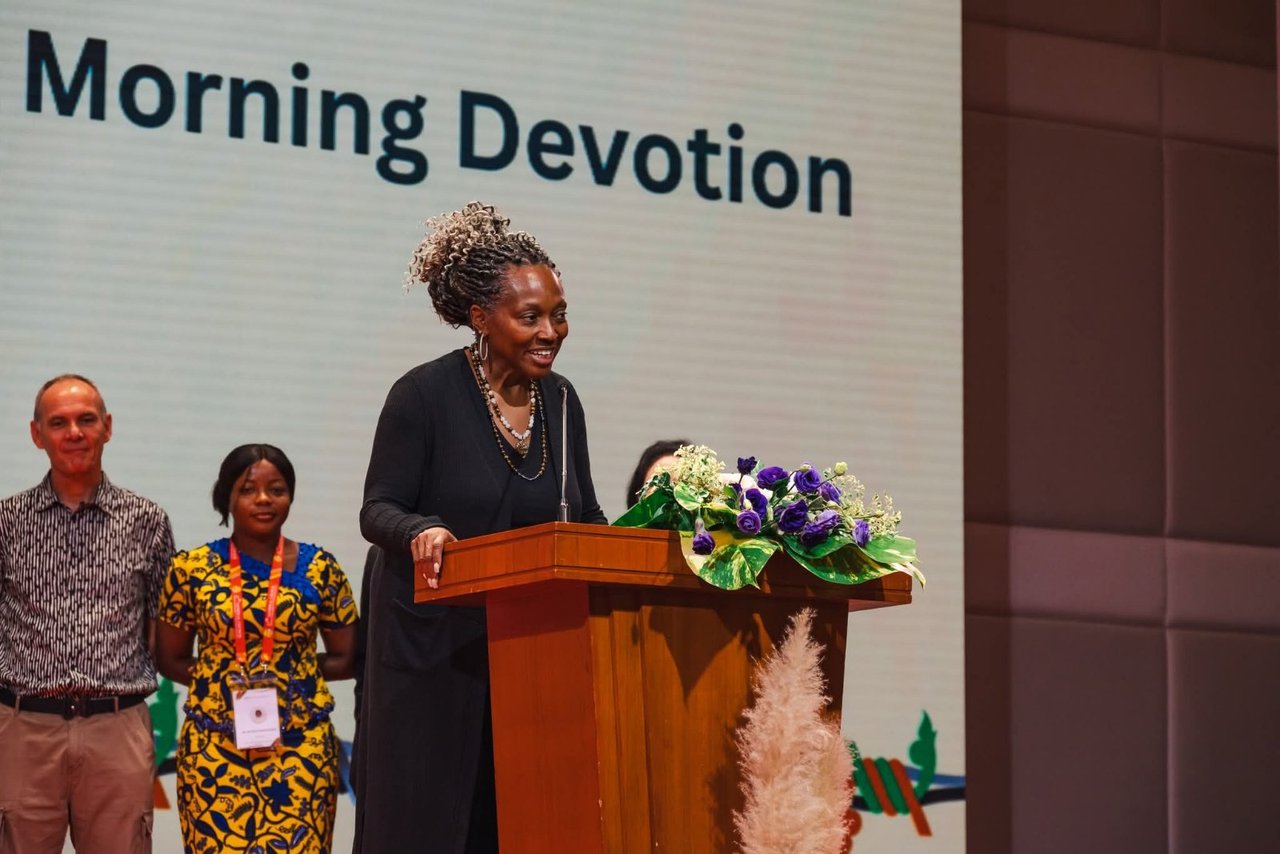The 27th General Council of the World Communion of Reformed Churches (WCRC) took place in Chiang Mai, Thailand, from 14 to 23 October. Delegates, ecumenical partners, and various observers from across the global Reformed Communion gathered under the theme “Persevere in Your Witness,” drawn from Hebrews 12:1: “Since we are surrounded by so great a cloud of witnesses… let us run with perseverance the race that is set before us.”

Photo: WCRC
The Council’s opening included words of welcome from the Church of Christ in Thailand (CCT) and local civic representatives. Cultural and musical performances highlighted the meeting’s location, and opening remarks acknowledged the diversity of the global Reformed family. The worship services throughout the Council included music, prayers, and readings from multiple regions and languages, emphasising the shared commitment of member churches while also recognising the unique settings in which each one serves. Over 400 participants came together for worship, shared reflection, decision-making sessions, and opportunities to learn from one another’s experiences in different regional contexts. Rev. Dr Setri Nyomi, the interim General Secretary, had announced on the opening day, the 14th of October, that 98 member churches, about 57% of active member churches, were participating. On Tuesday, the 21st of October, he announced that, as of Monday, this number had increased to 117 active member churches participating, accounting for more than two-thirds of the WCRC’s active members.
The Church of Christ in Thailand (CCT), which hosted the Council, has historical roots in 19th-century Protestant mission work, particularly in northern Thailand. Early mission efforts combined ministry with education and healthcare, leading to the establishment of schools, hospitals, and community development programs. Chiang Mai, where the Council took place, became an important centre for this work and remains so today. The CCT includes congregations in Thai, Chinese, Korean, and English-speaking communities and is recognised for contributing to interfaith cooperation, social welfare programs, and educational development. Its hospitality and on-the-ground organisation supported the Council throughout its duration.
A large portion of the Council’s work took place through listening, discernment, and decision sessions. In listening sessions, delegates would receive a report on thematic subjects the Council focuses on, before moving into their discernment groups, where delegates further reviewed and discussed a broad range of reports and proposals before they were brought to plenary for decisions. Reports included those from the President and the General Secretary, the Women’s Caucus, Youth Caucus, Finance Committee, Message Committee, and statements addressing ecumenical and interfaith relations, public witness, justice concerns, disability inclusion, and Indigenous presence and leadership in church life. The discussions focused on how the Communion continues to respond to ongoing challenges such as conflict, migration, climate stress, inequality, and threats to religious freedom in various regions.
Workshops also played a significant part in the Council program. These sessions covered different subjects connected to ministry, theological reflection, community engagement, and social issues. Participants shared experiences from their own contexts and discussed practical approaches to strengthening pastoral care, public advocacy, and cooperation between churches. The workshops offered space for smaller group dialogue that complemented the larger decision-making sessions and provided opportunities for learning across diverse settings.

Photo: WCRC
The Council marked the 150th anniversary of the Communion with a dedicated worship service. The service included contributions from past and present leaders and reflected on the history of the Reformed family worldwide. The anniversary emphasised continuity and the ongoing commitment to a shared Christian witness, especially in times of change and uncertainty.
Leadership elections were held during the Council. The Rev. Dr Karen Georgia Thompson, General Minister and President of the United Church of Christ (USA), was elected as the next President of the WCRC. She will serve alongside the next General Secretary, Rev. Philip Vinod Peacock, who was unanimously elected in September by the Executive Committee.
Five vice presidents were elected, representing the regions of Africa, Asia, Europe, Latin America, and North America. Rev. Martina Wasserloos, formerly the president of the European region, was elected as a vice president representing the European region. Members of the Executive Committee were also elected, and the composition of the new leadership reflects commitments to regional balance, gender balance, inclusion of lay and ordained individuals, and increased involvement of younger leaders. Rev. Mária Beszédes of the Reformed Church in Serbia was elected to the Executive Committee on behalf of the European Region. Constitutional amendments related to representation were approved to ensure that delegations moving forward will continue to maintain these balances.

Photo: WCRC
Financial planning and sustainability also featured heavily on the agenda. Delegates supported the development of a fundraising strategy coordinated by the Executive Committee, intended to strengthen the Communion’s ability to respond quickly to crises and to support initiatives among member churches, especially in contexts with fewer resources. The Council noted the importance of communication and regional engagement in fostering collaboration and maintaining a sense of shared purpose across different cultural settings.
The Council concluded with closing worship and final remarks from outgoing and incoming leadership, including a sermon from Rev. Dr Karen Georgia Thompson. Delegates completed remaining decisions on reports and confirmed areas of follow-up to be carried out in the coming years. Participants now return to their home contexts to share the outcomes, with continued coordination to be undertaken by committees and the Executive Committee as the Communion moves forward.